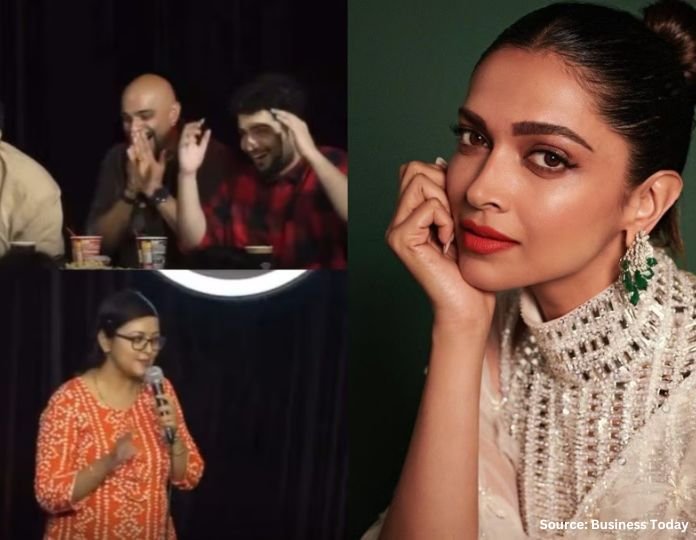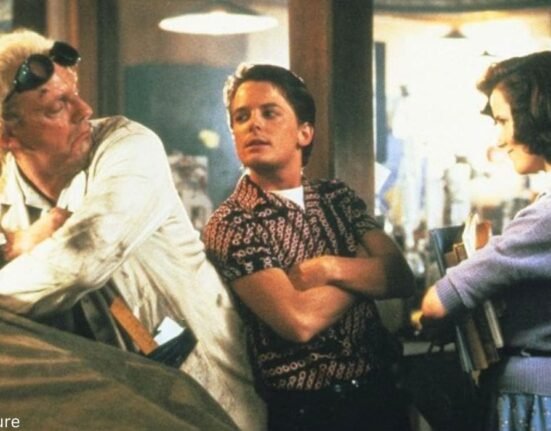A day without laughter is a day wasted
You might have heard of this famous quote by Charlie Chaplin, the legendary comedian. But did you know how important it is for us to burst into peals of laughter now and then? A hearty laugh is not only an obvious sign of happiness but also a marker of health. This may come across as a surprise but laughter has been presumed to correlate with a longer life! (Gonot-Schoupinsky, 2023). Indeed, that is correct. In most cases, we devalue the role of recreation in search of the “bigger” things in life. We become so entangled in the rat race and the humdrum of our everyday living that we forget to stop for a while and relish life.
They weren’t kidding when they said “Laughter is the best medicine”. Try to remember the last time you were feeling down and how just joking around with your friends or cracking up hysterically at a movie made you feel better instantly. Not to sound geeky but there is actual science behind it. You see, there is so much going on inside your body when you let out that infectious laughter of yours. But, do not worry.
They are all good stuff! (Although you can hurt your cheeks). To begin with, laughter, like any workout, accelerates your heart rate and subsequently lowers your blood pressure. Therefore, do not fear letting your laugh. That is not all. This naturally relieves your pain, makes you sleep better and even has a protective shield against disease (Field, 2024). Then comes the rush of hormones like dopamine oxytocin and endorphins all of which make you feel like a million bucks (Staff, 2022).
Read More: Controversy Erupts Over IGL Participant’s Joke on Kolkata Rape-Murder Case
Comedy
It is pretty interesting to look at how comedy developed and changed within different socio-political contexts. During times of war, comedy became more popular because it gave people some kind of relief and resilience; it served as a glimmer of hope in the middle of war’s absurdity and brutality. Not to mention, even films such as Chaplin’s Great Dictator went on to ridicule the destructive power of war and the emerging dictatorships (Barber, 2022).
So, it won’t be all wrong to claim that comedy has always had its “dark” face to it, meaning it proved itself to be an effective tool for dealing with problems, as it helped people make sense of their harsh realities of life. While comedy aided humanity during trying times, it appears, however, that such comedy today has become a dangerous territory in light of an increase in fundamentalism and intolerance (Abdel-Fadil, 2022).
Perhaps one of the most popular forms of the genre today is stand-up comedy, and this may be the case due to its relatability. In stand-up comedy, the comedian addresses the audience face-to-face, which has a sense of intimacy attached to it. However, in the context of dark comedy themes, stand-up comedy has, in recent times, also become a source of controversy. Dark comedy does tend to make light of serious subject matters and offers a healthy vent to let off pent-up emotions (Why Do We Use Dark Humour as a Coping Mechanism? 2021). Its very nature, however, demands a degree of raw honesty and boldness that makes it prone to eliciting strong reactions and offending certain audiences.
Read More: Dark Humour: The Fine Line Between Comedy and Insensitivity
Jokes on Mental health
Dark comedy has often been dominated by themes of mental illness, along with race, gender, and sexuality. The controversy surrounding the Latent show is an interesting case study in this regard, not only in terms of sensitivity toward mental health but also tolerance on the part of the audience. For those who are not familiar with the incident, the recent episode of the popular YouTube show India’s Got Latent hosted by comedian Samay Raina sparked heated debate when contestant Bunti Banerjee made a joke about actress Deepika Padukone’s depression struggles (Sonali, 2024).

Now, the whole event can be analyzed from various perspectives. Let’s start with the question of appropriateness. The question arises “How okay was it to joke about another person’s disorder on a media platform”. Then there is also the question of reception. “How and why did the audience react so strongly?”
Let’s try to deliberate on these questions. We’ll conclude a bit, but ask yourself what determines how much dark is okay in comedy and where you draw the line. The answer is not going to be easy.
There is the freedom of speech enshrined by the constitution but it does have clauses and is not absolute. This thing called “malicious intent” forms a very thin line separating what can be freely expressed without the risk of punity and what comes with legal consequences (Do Indians Have Freedom of Speech? 2018). Now coming to what appears to be, the stand-up comedian on this show only wanted to highlight the difficulties that accompany motherhood. Though that might be a dramatic trivialisation of what is a grave issue, the joke was never set to hurt sentiments.
Read More: Controversy Erupts Over Comedian’s Remarks on Deepika Padukone’s Depression on India’s Got Latent
The need for sensitivity and tolerance
Nevertheless, in no way does that take away from the truth that awareness and sensitivity about mental health are pitifully low in India (Srivastava et al., 2016). Amidst these circumstances, the outrage that the incident sparked is justifiable. Now, on one hand, comedy can serve as a powerful tool through which one shares different struggles with like-minded people who understand; however, on another hand, it becomes an issue when it poses a threat to another person’s mental well-being. The thing that often causes more harm than good in dark comedy is the lack of nuance in its delivery and understanding. The whole point of dark comedy is to clear the air of taboo surrounding difficult issues, not to add to it.
Considering audience perception raises questions on tolerance. The way the culture shapes how people take jokes is an important issue in this case because of the differences in temperaments, generations, and ideologies among the Indian audience. Matt Rife, for example, often jokes about topics such as disabilities, religion, and race in his shows—subjects that may be unsettling to many in India.
Read More: What is Comedy Therapy?
In any case, in a stand-up comedy, there’s always an option not to watch content that might seem inappropriate to the individual’s taste. Developing tolerance by empathizing with and understanding the comedian’s intentions can go a long way. Sometimes, it is better to lighten up, view things in the spirit of humour, and not take jokes too seriously, willingly suspending judgment when humour is the intent. That said, it is equally important to recognize that the right to dissent is as fundamental as the right to express oneself in a country like India (Bose, 2021). The nuances of sensibilities among Indian audiences can foster mutual respect and acknowledge differences in tastes.
In conclusion, stand-up comedy offers a fascinating lens for viewing psychological dynamics, such as emotional regulation, social bonding, and coping mechanisms. It serves as a release for pent-up emotions and a tool for fostering collective empathy while dealing with sensitive topics. Therefore, it is essential to balance creative expression with audience sensitivity to maintain its psychological benefits without causing harm.
References +
Abdel-Fadil, M. (2022). ‘Putting the Fun Back into Fundamentalism’: Toying with Islam and Extremism in Comedy. In Bristol University Press eBooks (pp. 201–222). https://doi.org/10.51952/9781529214697.ch009
Barber, N. (2022, February 24). The Great Dictator: The film that dared to laugh at Hitler. https://www.bbc.com/culture/article/20210204-the-great-dictator-the-film-that-dared-to-laugh-at-hitler
Bose, A. (2021, May 30). The necessity of the right to dissent in democratic India – iPleaders. iPleaders. https://blog.ipleaders.in/necessity-right-dissent-democratic-india/#Significance_of_the_right_to_dissent_in_the_Indian_democracy
Do Indians Have Freedom of Speech? (2018, April 23). Pacific Council on International Policy. https://www.pacificcouncil.org/newsroom/do-indians-have-freedom-speech
Field, B. (2024, January 30). The Health Benefits of Humor and Laughter. Verywell Mind. https://www.verywellmind.com/health-benefits-of-humor-and-laughter-5101137
Gonot-Schoupinsky, F. (2023). From positive psychology to positive biology: laughter and longevity. Exploration of Medicine, 1109–1115. https://doi.org/10.37349/emed.2023.00198
Sonali. (2024, November 20). ‘Absolutely tasteless’: Samay Raina’s show India’s Got Latent slammed for jokes over Deepika Padukone’s depression. Business Today. https://www.businesstoday.in/latest/trends/story/absolutely-tasteless-samay-rainas-show-indias-got-latent-slammed-for-jokes-over-deepika-padukones-depression-454408-2024-11-20#
Srivastava, K., Chatterjee, K., & Bhat, P. (2016). Mental health awareness: The Indian scenario. Industrial Psychiatry Journal, 25(2), 131. https://doi.org/10.4103/ipj.ipj_45_17
Staff, N. (2022, June 27). The Neuroscience of
Laughter, and How to Inspire More of It at Work. NeuroLeadership Institute. https://neuroleadership.com/your-brain-at-work/neuroscience-laughter-at-work/
Why do we use dark humour as a coping
mechanism? (2021, December 12). https://patient.info/news-and-features/why-do-we-use-dark-humour-as-a-coping-mechanism













Leave feedback about this